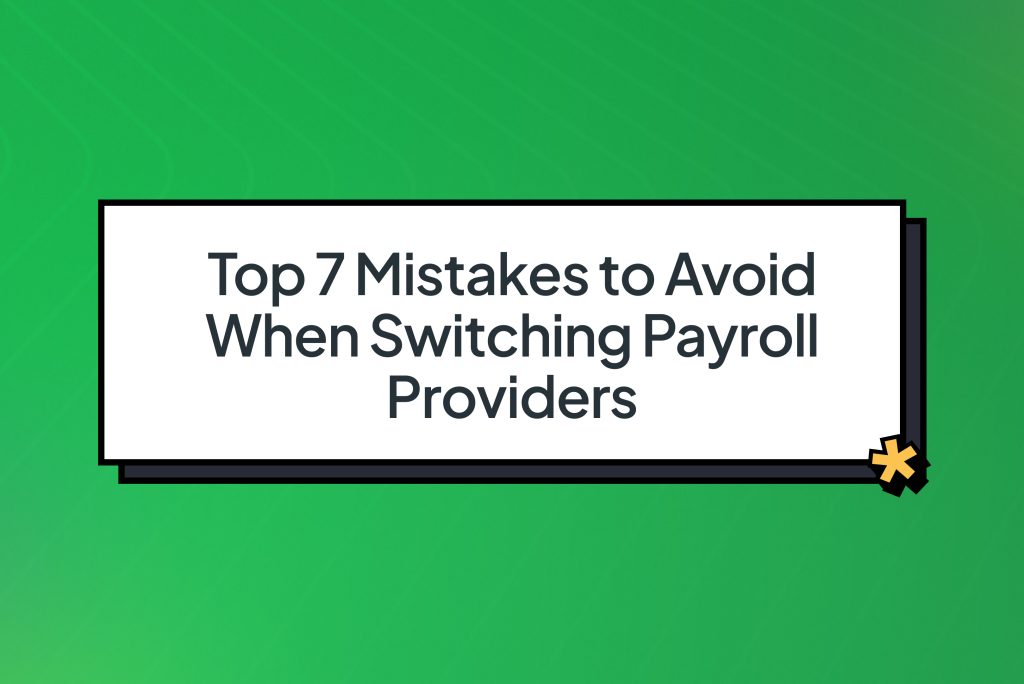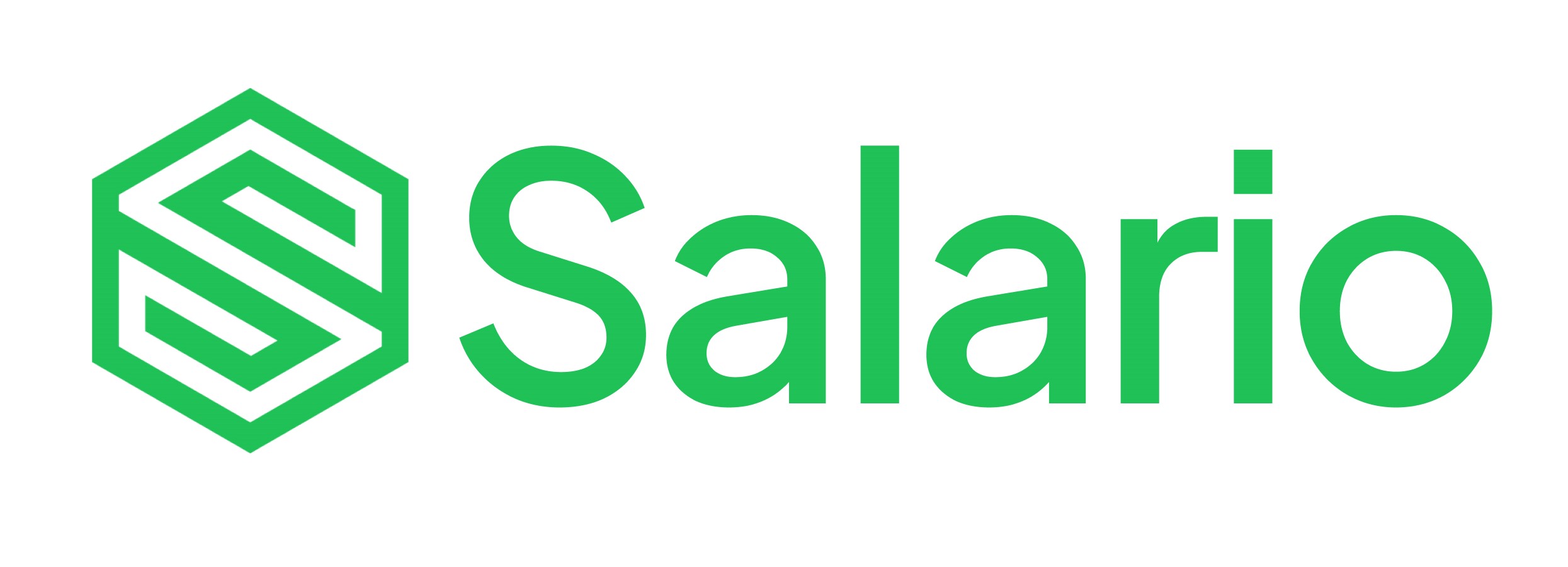
You have finally decided to switch payroll options after months of searching for a suitable replacement. Now comes the task of migrating all necessary data. Remember, someone’s salary rests on how well you switch and move data to your new platform. You are an experienced HR so you likely already know the best practices for switching, but you might gloss over some details. Rather than focusing on all you need to do, today we’ll look at the top 7 mistakes to avoid when switching payroll providers. Let’s get right to business
1. Choosing a Payroll Provider Based on Price Alone
When it comes to switching payroll providers, it can be tempting to pick the cheapest option available. After all, controlling costs is important for growing businesses. However, selecting a provider based solely on price can lead to unexpected problems that end up costing more in the long run.
Paying less upfront may mean sacrificing crucial features, such as automated compliance updates, key integrations with HR tools like Zoho People or Odoo, or robust support when issues arise. For Nigerian businesses, compliance with PAYE, pensions, and NHF deductions is non-negotiable. If your provider fails to handle these correctly, penalties and payroll errors can become expensive mistakes.
On the other end, paying more does not always mean paying for value. You could be paying more for a product and be bombarded with features you don’t need and complex setups you might regret.
Prioritize value instead of cost when choosing a service. Look for features that streamline payroll, enable business development, and assure local compliance. Choosing a dependable payroll source upfront saves time, avoids errors, and makes transferring providers easier.
2. Failing to Account for Implementation Time
Switching payroll providers isn’t an instant process, no matter how eager you are to get started. Many businesses underestimate the time it takes to set up a new system, migrate data, and train the HR team. The result? Payroll delays, frustrated employees, and unnecessary stress for your HR department.
Implementation time varies depending on the complexity of your payroll, the number of employees, and the features of your new provider. Some platforms require weeks of setup, including configuring tax settings, integrating with HR tools like Zoho People or Odoo, and testing calculations for accuracy. Rushing this phase often leads to errors and compliance risks, which can cost your business both time and money.
Plan for a realistic timeline when switching payroll providers. Schedule extra days for testing, employee training, and final verification of deductions and allowances. Giving yourself enough time ensures a smooth transition, avoids surprises on paydays, and keeps your team confident that salaries will be accurate and on time.
3. Migrating Payroll Data Inaccurately or Insecurely
One of the riskiest parts of switching payroll providers is moving your payroll data. Employee salaries, tax records, benefits, and deductions all need to be migrated accurately. A single mistake, (a missing deduction or incorrect tax code,) can cause payroll errors, employee dissatisfaction, and even compliance penalties.
Data security is another critical concern. Payroll contains sensitive personal and financial information, and transferring it without proper safeguards exposes your business to breaches or leaks. For Nigerian businesses, this risk is heightened if spreadsheets or unsecured files are used during the migration.
To avoid these pitfalls, always validate your data before and after migration. Use secure channels, encryption, and, if possible, involve your payroll provider’s support team during the transfer. Double-check employee records, salaries, tax deductions, and historical data to ensure nothing is lost or miscalculated. A careful and secure migration protects both your employees and your business, making the switch to a new payroll system much smoother.
4. Overlooking Compliance Requirements During the Transition
When switching payroll providers, it’s easy to focus on software setup and forget about compliance. For Nigerian businesses, staying on top of PAYE, pensions, NHF contributions, and other statutory deductions is non-negotiable. Missing even a single requirement can result in penalties, fines, or employee grievances.
Many businesses assume their new payroll provider will automatically handle compliance. While modern payroll software can help, it’s still your responsibility to ensure all settings are correctly configured and up to date with Nigerian labor laws. This includes validating tax codes, statutory deductions, and local reporting requirements.
To avoid issues, schedule a compliance review before going live with the new system. Cross-check employee records, tax tables, and contribution rates. Consider running parallel payroll calculations to confirm accuracy. By prioritizing compliance during the transition, you safeguard your employees’ trust and protect your business from costly mistakes.
5. Neglecting Employee Communication and Training
Switching payroll providers affects more than just your HR team, it impacts every employee who relies on timely and accurate pay. Yet, many businesses overlook communication and training during the transition, leading to confusion, anxiety, and a flood of payroll queries.
Employees need to know what’s changing, when, and how it affects their pay, benefits, and access to payroll information. Similarly, your HR team must understand the new system’s features, workflows, and reporting tools. Without proper training, even the best payroll software can be underutilized or mismanaged.
To avoid these issues, develop a clear communication plan and schedule training sessions for both employees and HR staff. Provide guides, FAQs, or walkthroughs for the new platform, and set up a support channel for questions. Proactive communication and training help build confidence, ensure smooth adoption, and prevent errors, making your switch to a new payroll provider seamless and stress-free.
6. Skipping Proper Testing or Parallel Runs
One of the most common mistakes when switching payroll providers is rushing into live payroll without testing the new system. Running payroll without verification can lead to errors in salaries, tax deductions, and benefits, which can frustrate employees and create compliance risks.
A parallel run, processing payroll simultaneously on both the old and new systems, helps identify discrepancies before going live. This step ensures calculations, deductions, and statutory contributions are accurate and that your new provider’s platform handles your specific payroll needs.
For Nigerian businesses, it’s especially important to test PAYE, pensions, NHF, and other statutory deductions during the parallel run. Compare the results against your previous system and reconcile any differences. Proper testing minimizes mistakes, builds confidence in the new system, and ensures that when the switch is complete, employees receive their correct pay on time.
7. Relying on Old Methods for the New Payroll System
After switching payroll providers, it’s tempting to stick with the old processes you’re familiar with, like manually calculating deductions or maintaining spreadsheets for record-keeping. This approach defeats the purpose of modern payroll software and limits the benefits of automation, accuracy, and compliance.
To make the most of your new system, embrace its tools fully. Automate calculations, utilize reporting dashboards, and follow best practices recommended by your provider. Training your HR team to adapt to these changes ensures you maximize efficiency, reduce errors, and truly enjoy the advantages of switching payroll providers.
Conclusion
Avoiding these typical pitfalls makes the often-dreaded process of switching payroll providers easier, faster, and more trustworthy. Mistakes can cost time, money, and trust among employees.
If you’re ready to simplify your payroll, reduce errors, and free up your HR team for more strategic work, now is the perfect time to take action. Book a demo with Salario today and discover how our payroll solutions for small and growing businesses in Nigeria can make switching smooth, secure, and fully compliant.
